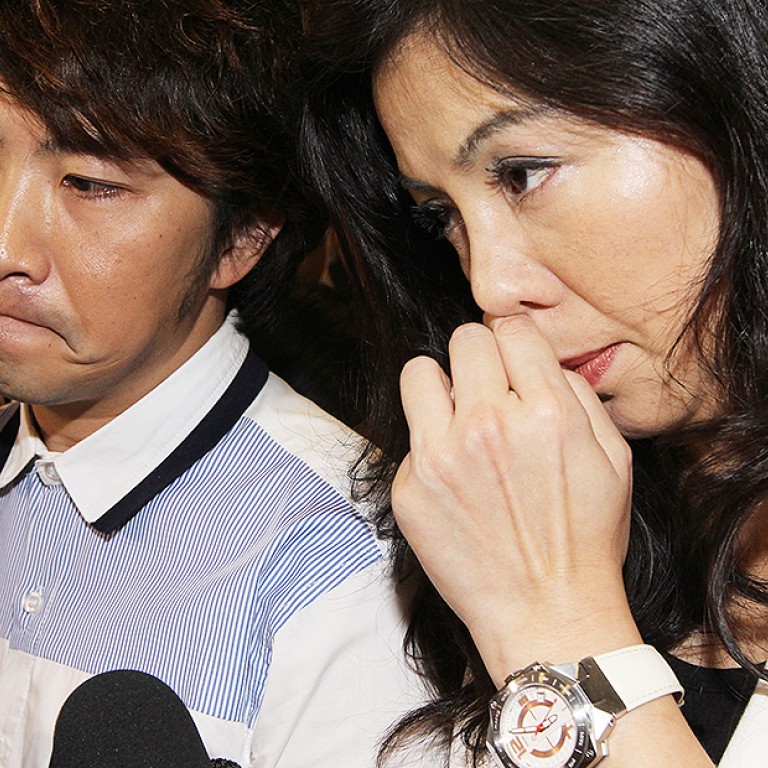
Reform of Medical Council can ensure public interests are better protected
Albert Cheng says the way it handled a celebrity couple's complaint about the death of their baby son shows its credibility is in tatters
Cheung Tin-lam died on February 20, 2005, a day after he was born. It has taken the Medical Council over nine years to establish that the doctor who delivered him prematurely was guilty of four counts of professional misconduct.
Tin-lam's parents, former actress Eugina Lau Mei-kuen and singer Peter Cheung Shung-tak, had to sell their flat to pay the hefty legal costs. Cheung also suffered from depression during their pursuit of justice.
Last Sunday, the council eventually found that obstetrician Christine Choy Ming-yan improperly ruptured Lau's amniotic sac without her consent, inducing labour a month before the expected due date, and failed to give the infant effective resuscitation.
Choy has been barred from practising medicine for two years.
Paediatrician Wan Kam-ming was found not guilty of failing to transfer the newborn quickly enough to Queen Elizabeth Hospital, which has better equipment for neonatal care. He was found to have made an incorrect clinical assessment but was cleared of professional misconduct.
The punishments meted out have made a mockery of our medical system.
Lau was in tears after hearing the verdict. Asked if she thought it was just, she said justice could never be done because her child "was dead and could never come back".
The couple had repeatedly said they were pursuing the claim to find out the truth and uncover any mistakes in Hong Kong's medical system.
Soon after the baby's death, the family tried to lodge a complaint with the Medical Council, which is authorised by law to exercise regulatory and disciplinary powers for the profession, but it was rejected. The council dismissed the case on the grounds that infant mortality was common. This from a body that is supposed to be a protector of public interest.
The couple persisted. In a 2008 High Court writ against Choy and Wan, Lau sought damages for injuries suffered by both herself and her baby. The civil suit was settled a year later when the couple received compensation.
A second complaint was filed to the Medical Council in 2009 on the basis of an expert report they commissioned for the civil claim.
The case has attracted considerable media attention because of the couple's celebrity status. Had it been an ordinary family, the complainants may well have quit long ago.
Both public and private hospitals have seen an increase of medical incidents over the years. The Medical Council, which handles such complaints, has failed in its duty.
Even in substantiated malpractice cases, the council appears to mete out lenient punishment. Its credibility is on the brink of bankruptcy. Yet, the council does not appear to be the least bit concerned.
The Medical Council and the Hong Kong Medical Association are the two most important bodies of the profession. Both are dominated by private practitioners.
All but a handful of the council's 28 incumbent general members are doctors. Thus, those from outside the medical fraternity often find their voices drowned out.
The council's composition is markedly different from its counterparts elsewhere. The General Medical Council, for example, is the independent regulator of doctors in the UK. Its governing body has 12 members, of which half are doctors and half are lay people. The balance is meant to ensure that public concerns are effectively reflected in the regulatory body.
The Cheung case has triggered a public outcry. Yet, the council does not seem to be listening. After the hearings, council member Dr Paul Shea Tat-ming was asked on television how it could better streamline protracted complaint proceedings. He merely pointed to difficulties in scheduling meetings, securing rooms and other technical excuses. It would appear that the council has no intention to reform.
The government should ride on the public sentiment to overhaul the council. More lay members are needed to ensure public interest does not come second to that of the profession in the council's affairs.
Breaking the monopoly of local practitioners in the profession is another way to tackle the root problems. All Hong Kong permanent residents with overseas medical accreditations should be allowed to practise here without having to take a local examination, irrespective of where they attained their qualifications as doctors or nurses.
The council's motto is "Ensuring Justice, Maintaining Professionalism, Protecting the Public". If it is serious about its pledge, it should refrain from blocking greater public participation in monitoring the way doctors and medical institutions conduct their business. Let's hope Tin-lam did not die in vain.

